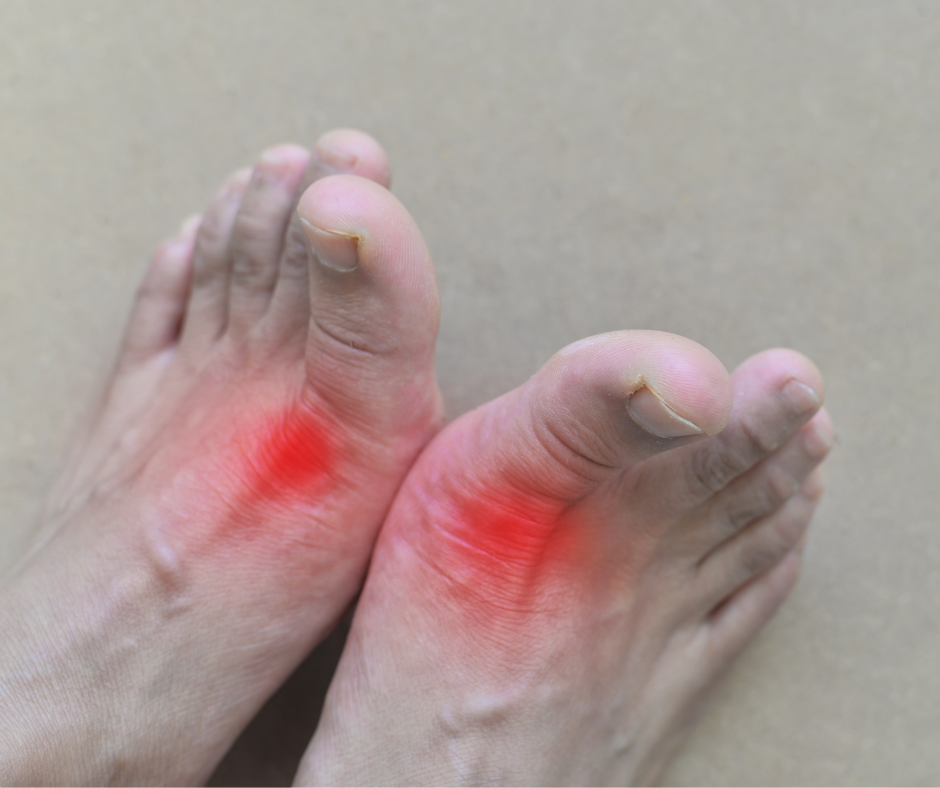
Have you heard of gout? Most people haven’t, but if they have, they don’t know what it is. Gout is a common form of arthritis, affecting primarily the big toe joint. It can come on suddenly, without warning, and lead to a lot of pain and discomfort. Here at Syracuse Podiatry, we want to help educate our patients so they’re more prepared and foot conscious. Let’s talk about gout!
It Starts with Uric Acid
Gout happens when there’s a build-up of uric acid in your body, which then crystallizes in your joints, blood, and tissues. Uric acid is produced during the breakdown of purines. Purines are a naturally occurring chemical found in your body and the foods you eat.
Those who produce too much uric acid, or aren’t able to pass it efficiently, end up with hyperuricemia, the main cause of gout. It is possible to have gout without hyperuricemia and vice versa!
Gout Flares
Gout has periods of flares and remission. These flares can last for days or weeks. You may also have “gout attacks,” which usually happen in the middle of the night and last for hours. How do you know you’re experiencing a flare or attack? You’ll likely experience these symptoms in your joints:
- Intense pain
- Swelling
- Heat
- Redness
- Reduced range of motion
Risk Factors
Who is more likely to develop gout? First, we have to look at who’s most at risk of having hyperuricemia. Men ages 40-60 are most likely to develop gout, but so are people who…
- Are obese
- Have congestive heart failure, hypertension (high blood pressure), insulin resistance, metabolic syndrome, diabetes, or poor kidney function
- Use certain medications, like diuretics
- Drink alcohol
- Consume drinks or foods that are high in fructose
- Eat protein-rich foods that are high in purines, like red meat, organ meat, anchovies, sardines, mussels, scallops, trout, and tuna
Concerned about gout? Call our office today and ask about it. Dr. Ryan L. D’Amico, Dr. Donal M. Erickson, Dr. Keith Sherman, Dr. Anne-Louise Smith, Dr. Justin Muser, and the rest of the staff at Syracuse Podiatry in East Syracuse, New York, can help treat and care for your feet. Call us at 315-446-3668 or make an appointment online to get help today.
